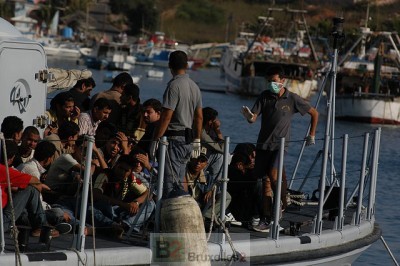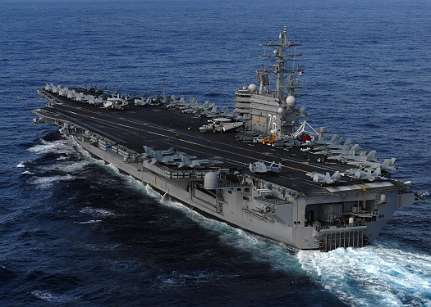Lampedusa. Italy appeals to Europe (once again)

(BRUSSELS2) This is not the first time that Rome has sounded the alarm in Brussels. Italy has however decided to set off again to attack the European Parthenon. The Italian Minister for Foreign Affairs, Paolo Gentiloni, has therefore decided to send a letter to the European Commission asking for a little more solidarity and urgent action in the face of the tragedy of migrants in the Mediterranean. The letter, addressed at the High business representative foreign, Federica Mogherini in French Timmermans (the vice president in charge of immigration) and six other commissioners, was sent point-blank, since the 8 commissioners had to hold on, on the 4 March next, a meeting on immigration.
The number of immigrants is increasing
The dismay and frustration "are important" in public opinion and in Parliament " with the " recurrence new accident tragic to proportions enormous offshore from Lampedusa warns Minister Gentiloni. " Since the beginning of the year, today there is an increase of 58,8% (of arrivals) compared to 2014 ». NB: contrary to what certain experts had predicted, the end of the "Mare Nostrum" operation, carried out nationally by Italy, and considered as a "vacuum cleaner of immigrants", did not at all end to the phenomenon. On the contrary.
Do more, and urgently
L'operation"Newt" is " a first step In the right direction ". But that's not enough, he says.. 1 plane and 2 boats is, in fact, a bit low for Europe...” We think that the European Union should do more in terms of means financial and by putting concretely more naval air assets » He's « more than ever necessary for the European Union respond appropriately, to increase solidarity and sharing of responsibilities at the European level He adds.
A few comments
Immigrants but also refugees
This increase in arrivals seems more due to the increasingly critical situation in several countries (Syria, Libya in particular, but also Mali, Nigeria, Somalia) which encourage, alongside traditional economic immigration, immigration linked to conflicts in leave their country and come and try their luck in Europe. Many of these "immigrants" are also political refugees.
A certain fatalism
It is also the consequence of a certain fatalism, and also laxity, of the various European authorities in the face of traffickers of all kinds who charter these boats and make immigrants/refugees pay a high price for the passage. I asked the question several times to the various European officials, the answer was: "it's not possible", "what do you want to do?", "we cannot act outside territorial waters", etc
An operation to track the traffickers would be useful
Today it is quite incomprehensible that we cannot set up an operation – as in the Indian Ocean for the pirates – intended to identify, track down and arrest the sponsors and operators of this chain of slavery. It is not out of reach for the European Union to obtain a United Nations Security Council resolution to this effect, to conclude agreements with certain neighboring States (such as Egypt, Lebanon, Turkey, Morocco or even Libya *), and to set up some means, air in particular (drones, helicopters, maritime patrol planes), to locate and identify the few bands of traffickers who operate. Then to stop them, possibly on the high seas, or with the assistance of neighboring countries. And, finally, to bring them to justice, either in their country of origin, or in the country of the flag which arrested them.
The example of EUNavfor Atalanta
The example of piracy in the Indian Ocean (EUNAVFOR Atalanta + Ocean Shield **) shows that such a chain (tracking, filing, arrest, transfer to justice), can quite quickly (2-3 years) have a success, at least to stem the phenomenon, or even dry up the mechanics. Because today, human trafficking is very profitable with a very very low risk of being arrested. If we raise the level of risk, we diminish the raison d'être of the traffic. It will then remain to limit the sources of conflict in the neighborhood... That is more difficult.
(Nicolas Gros-Verheyde)
* The case of Libya (failed state) will have to be settled by an international resolution, as was the case of Somalia, where international forces were authorized to operate in territorial waters.
** I will be quite reserved for a NATO operation in the Mediterranean region which would encounter the same difficulties as in the Indian Ocean to establish legally valid agreements with the riparian states and would have an additional difficulty (Russia will say she yes, today, to a "chapter VII" operation led by NATO in the Mediterranean...).
Read also on this topic

